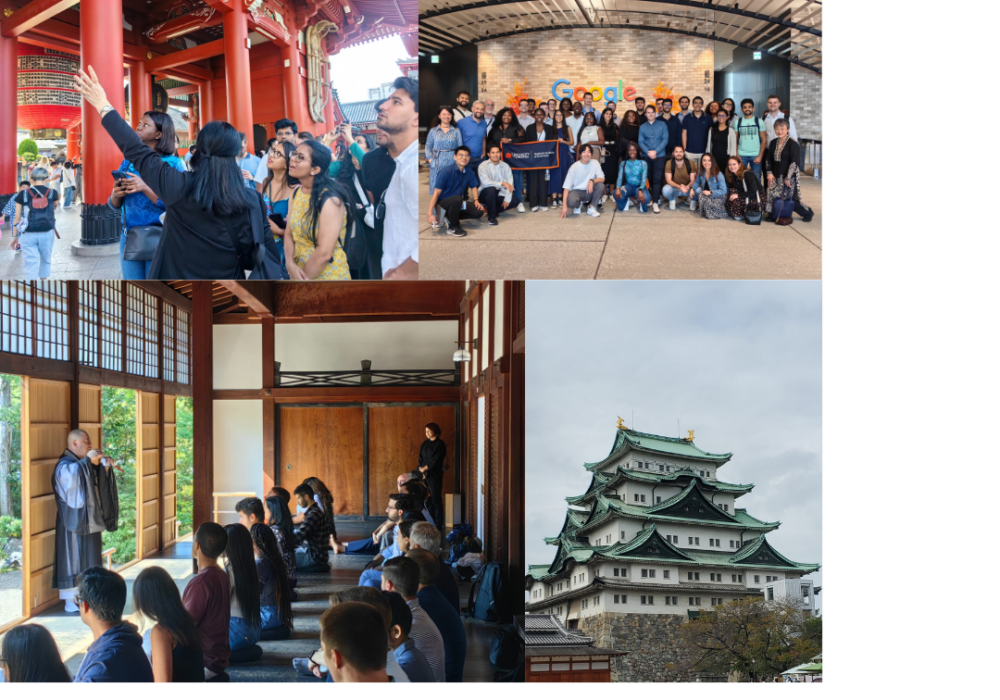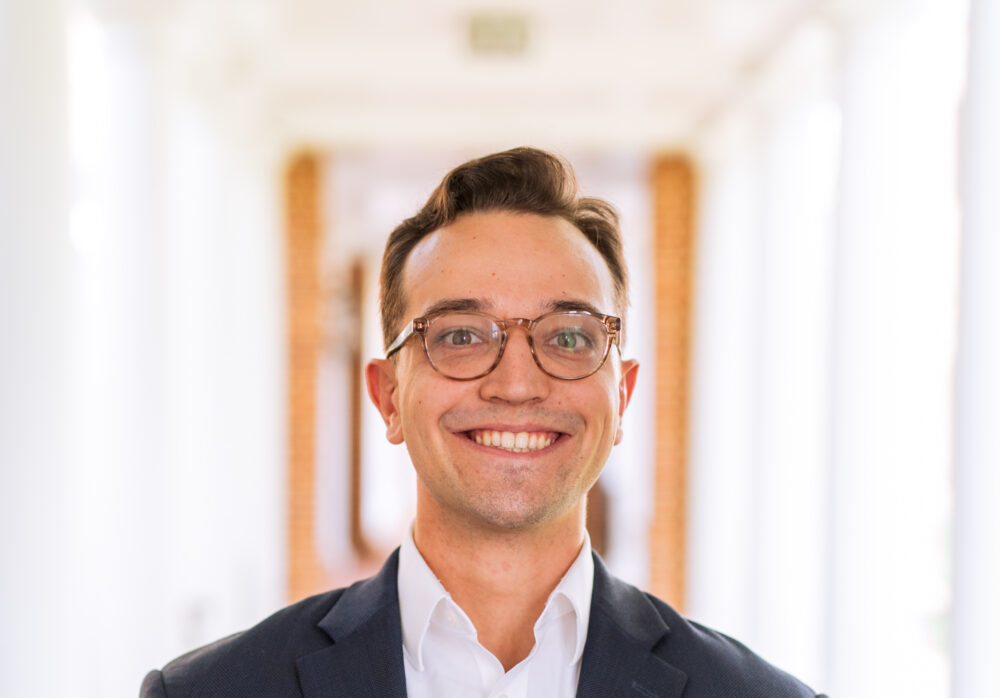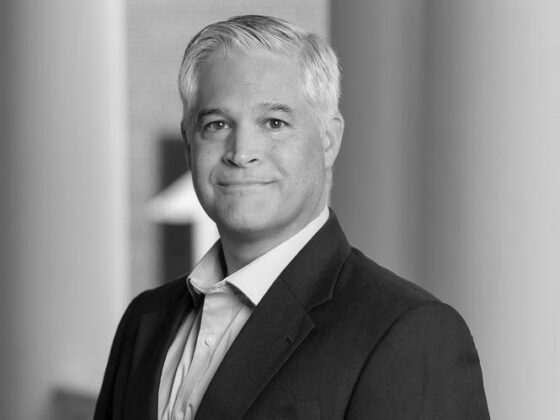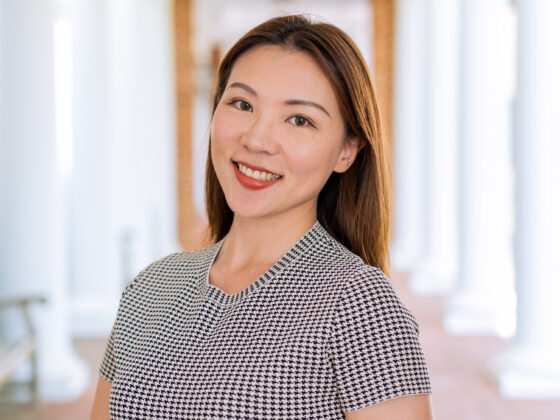Cam Copeland is a Jefferson Fellow and second-year MBA Candidate (Class of ’25). Prior to pursuing his MBA, he worked as a consultant for Deloitte, where he assisted federal clients in establishing their own data and analytics infrastructures. Cam also supports the UVA Licensing & Ventures Seed Fund, where he does due diligence on UVA-related medical technologies seeking venture capital investment. After graduation, Cam plans to join Microsoft in Redmond, Washington, as a financial manager within the Central Finance Team.
1) Can you introduce yourself by sharing some highlights from your background that have shaped who you are?
I am a big believer in the power of opportunity. Prior to joining Darden, I spent three years volunteering with the Deloitte Veterans Enablement Team, where I helped military service members transition to civilian life. The team’s mission was simple: equip veterans with the tools and confidence needed to find jobs. We hosted “Employment Bootcamps” where veterans practiced, refined, and honed core job skills.
I learned that a community grows strong only when all of its members are given a chance to succeed. Since joining Darden, I’ve strived to apply that lesson in a new setting. I am currently involved with the Darden Prison Reentry Education Program (PREP), where I teach incarcerated students fundamental business skills — marketing, finance, strategy, etc. — so that they too have an opportunity to succeed as they prepare to transition back into traditional life.
2) What drew you to Japan for a Darden Worldwide Course?
For as long as I can remember, I have been fascinated by various aspects of Japanese culture. I grew up playing Japanese games, watching Japanese shows, writing haiku with my mom, and tasting every Japanese dish I could get my hands on. And yet, I felt that my understanding of Japanese culture barely scratched the surface of the country’s rich history and ways of life. I had a genuine passion for the parts of Japanese culture that I already knew, and an earnest desire to learn more.
The Darden Worldwide Course in Japan was eye-opening. In just a week’s time, we explored the dense urban environments of Tokyo, the ancient temples in Kyoto, and the rural mountains and villages of Keihoku. All those experiences helped broaden my perspective and my admiration of Japanese culture.
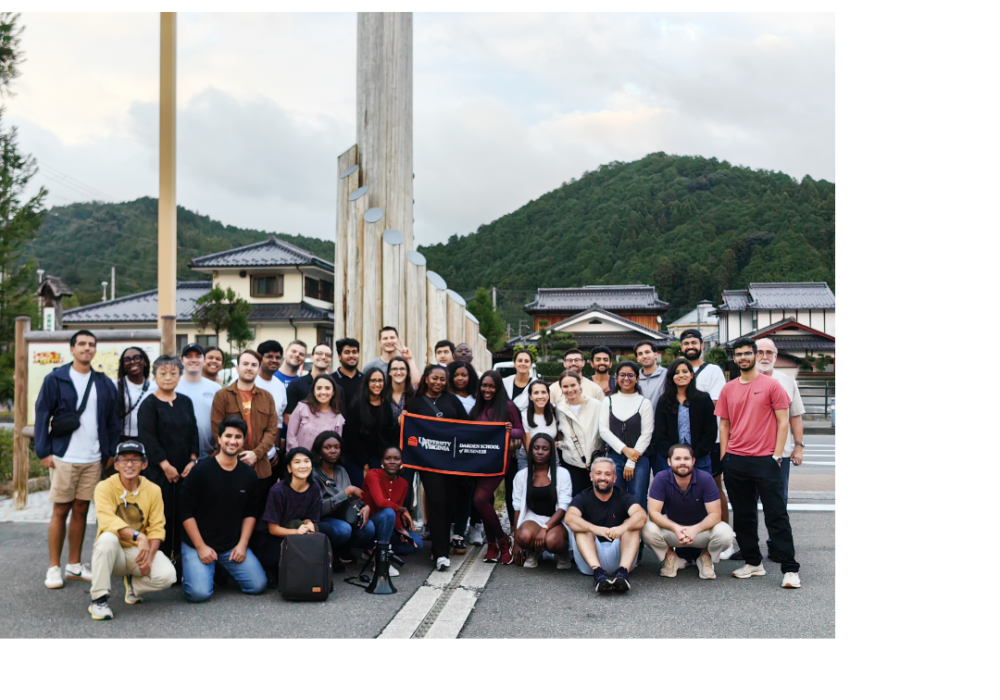
3) Was there a particular business visit that surprised you or that you found especially interesting?
During our last day in Tokyo, we visited the headquarters of Fujitsu, one of the largest information and communications technology companies in Japan. During the first part of our visit, they showed us all the tremendous use-cases for Artificial Intelligence that they were currently developing to advance sustainable businesses throughout the world.
After their presentation about how AI will change the world, they flipped the script and turned the question back on us: how could we use AI to advance an industry of our choice? We huddled into breakout groups, devised our plans, then presented our thoughts. We ended up having an incredible conversation with the Fujitsu business leaders that explored AI applications in a variety of industries. As someone who is deeply interested in the future of machine learning, it was incredible to see such a rich dialogue between Japanese industry veterans and Darden MBA students exploring a brand-new world of technology and its potential.
4) Was there a particular moment during the course that left a lasting impression on you?
In the heart of rural Japan, nearly 1.5 hours outside of Kyoto, there is a small village tucked within the mountains and nestled between rivers. This village is called Keihoku, and its history dates back well over a thousand years. During the last day of our course, our group explored Keihoku — we spoke with its residents, learned about its history, and explored the nature surrounding the village.
As we hiked along one of the forest trails, we stumbled across a small opening in the side of the mountain, nearly obscured by the natural folds of the terrain. An old stone staircase led the way up to a tiny entrance, no bigger than three feet tall. Inside was a tight, dark corridor that led to a simple shrine, decorated with tiny fox statues and beautifully maintained. This seemingly random hole in the mountain was a tomb dedicated to the lost ancestors of the village.
I absolutely loved exploring this shrine. Despite the fact that we were in a remote village walking along an even more remote path, there was still someone who cared enough about the village’s thousand-year-old history and its people to maintain this tomb. Even this isolated place, which probably gets only a few visitors per year, was something worth honoring.
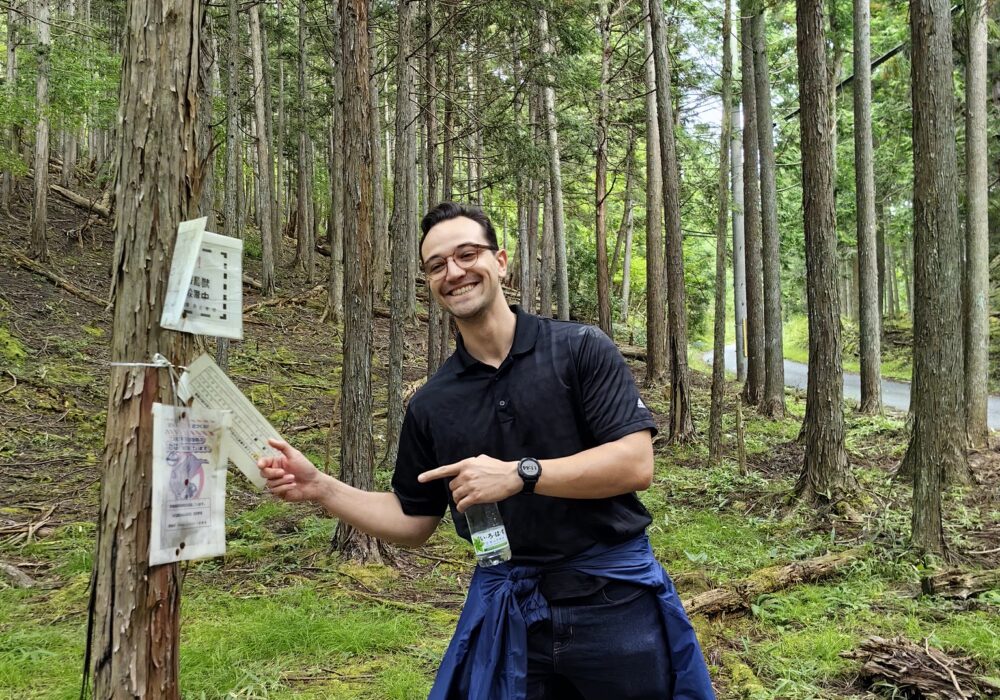
5) How did engaging directly with Japanese professionals and business leaders refine your understanding of the cultural layers within the Japanese business landscape?
One of the major themes that we saw manifest nearly everywhere was this idea of “doing a job well” or “doing something the way it is supposed to be done.” I can’t quite remember the exact translation, but this concept seemed to be core to Japanese business philosophy. Every job we saw had this belief and attitude embedded within it, from the cutting-edge software engineers to the old school construction workers meticulously cleaning their sites at day’s end.
This is the very same philosophy that Toyota embodies to its core, and it is fundamental to the idea of continuous improvement. Every task, no matter how seemingly benign, is worth doing correctly. It is something that can easily get lost as businesses scale and the focus becomes solely fixated on the bottom line and short-term profitability. But this ethos is something far more durable and can serve Western companies well.
6) If you were to distill the most valuable lessons from this program into a piece of advice for future participants, what would that be?
Let your curiosity run wild, seek the unfamiliar, and embrace the cultural differences you find. This course to Japan has shown me that we, as humans, are similar in so many ways, despite sometimes profound cultural differences. And those cultural differences are worth exploring because they force you to be introspective and understand yourself on a more fundamental level.
Also, if you are going to Japan, I hope you like seafood 😊.
